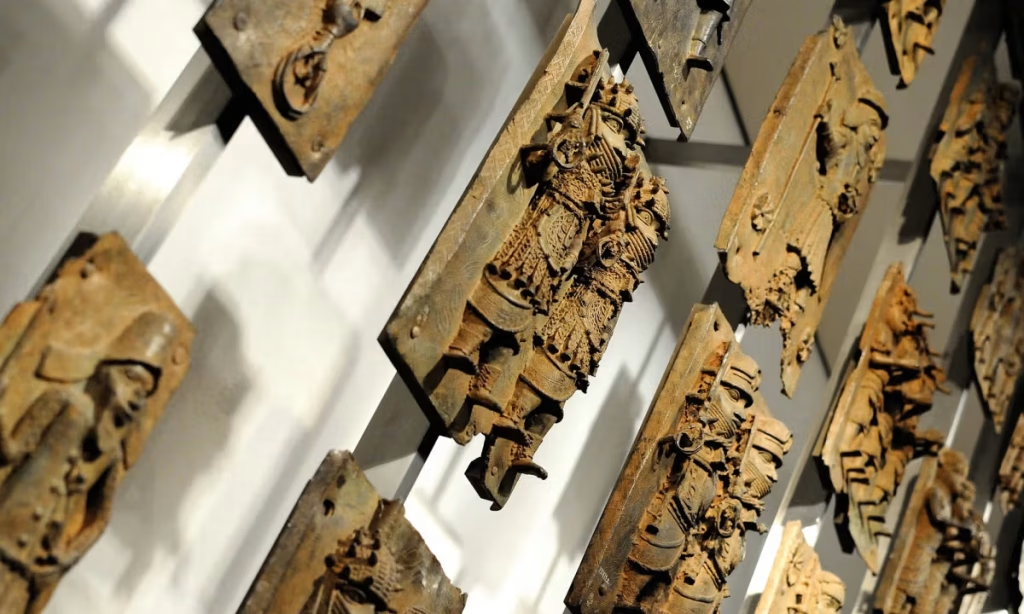UK national museums have been shut out from new legislation that would enable them to restitute objects on moral grounds. Provisions to the Charities Act 2022 (sections 15 and 16) will come into force today (27 November) announced Stephanie Peacock, the parliamentary under-secretary of state at the UK Department for Culture, Media and Sport (DCMS), providing some museum trustees with an easier way of returning cultural objects to communities of origin.
For non-national museums established as charities, the legislation allows for authorisation of transferring property on a “moral basis” (known as an ex gratia transfer or payment). The ex gratia principle has already been used by a number of museums in restitution cases. These include the Horniman Museum and Gardens in London and Jesus College, University of Cambridge, who both used the principle in 2021 to successfully apply for approval to transfer their Benin bronzes to Nigeria.
But the DCMS confirmed that its 16 funded museums would be specifically excluded from the legislation, including the British Museum, Tate and the National Gallery, due to the existing statutory restrictions on those organisations, according to UK Museums Journal.
Alexander Herman, the director of the Institute of Art & Law, explains in a blog dating from 2022 how the legislation works: “The principal legislation affecting charities in England and Wales is the Charities Act 2011. Currently, under section 106, charity trustees have the ability to seek authorisation from the Charity Commission if they feel compelled by a moral obligation to make a transfer of charity property. Such transfers are known as ex gratia payments.”
In 2022, pro-restitution commentators were relieved to see changes proposed to charity laws in England and Wales, namely introducing sections 15 and 16, that would give national institutions leeway to dispose of objects on moral grounds, thereby enabling museums, established by statute or as charitable trusts, to bypass long-standing legislation.
But in a letter dated 31 January 2024 to the Charity Commission, the former Conservative arts and heritage minister, Lord Parkinson of Whitley Bay, confirmed that national museums and galleries would be excluded from parts of the Charities Act 2022 (sections 15 and 16).
Herman and the solicitor Hugh Johnson-Gilbert discussed the topic earlier this year on the Institute of Art & Law blog before the Labour government’s current exclusion of the collections of national museums from the application of sections 15 and 16. “The effect of sections 15 and 16 of the Charities Act 2022 would be to allow all charity trustees, whether restricted by governing legislation or not, to make ex gratia decisions on a moral basis. There is logic in ensuring that charities are able to honour moral obligations without undue restriction,” they said.
Herman and Johnson-Gilbert outline how the new provisions will apply. “The section 15 amendment would mean that charity trustees could make ex gratia applications of charity property if of ‘low value’ (depending on the income of the charity, to a maximum value of £20,000) without any need for authorisation from an external body like the Charity Commission. The amendment set out in section 16 would mean the Charity Commission could authorise ex gratia transfers of potentially any charity property requested by trustees, as could the Attorney General or the courts, regardless of any other legislative prohibition.”
Both state that “there is at least an argument that it [bringing the provisions into force] cannot lawfully be achieved by secondary legislation”, though this appears to now be the case.
Amy Shakespeare, an academic at the University of Exeter and the founder of the organisation Routes to Return, which advocates for repatriation policies in the UK, tells The Art Newspaper: “Hopefully many museums will utilise this principle to engage in repatriation. However, it is incredibly disappointing that the government has missed the opportunity to demonstrate meaningful support for repatriation by excluding these 16 museums from the new provisions.
“These museums continue to hide behind legislation that they claim makes them unable to engage in repatriation. Including them in these provisions would have opened opportunities for them to start acting on this urgent and important human rights issue.”
The DCMS had not responded to a request for comment at the time of publishing.
